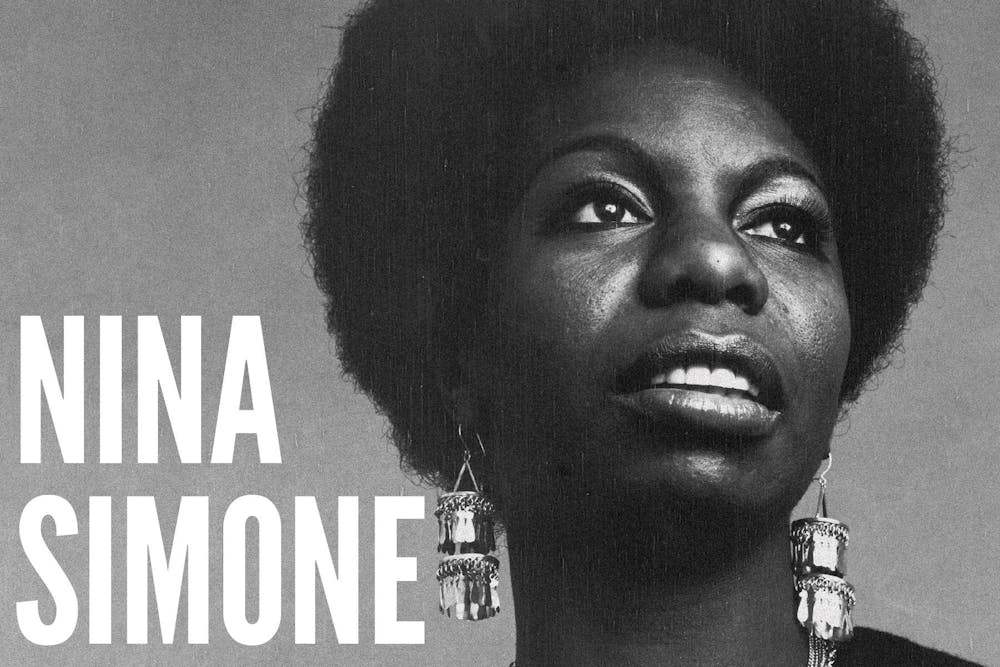As we close out Black History Month, a belated happy birthday is in order for Nina Simone. Also known as “The High Priestess of Soul,” this civil rights era musician carved out space for major political discourse in music and highlighted the importance of art in times of conflict. She would’ve been 91 this year.
Simone’s career shifted dramatically over the course of her 70 years of life. Like many civil rights activists alongside her, she represented the best of humanity, skillfully turning her voice into the sound of the collective. Through her art, she made space for Black Americans to process the grief of existence. She laid the foundation for artists for generations to come, allowing them to elevate their own stories about the America we know today.
Though at its core, her music is personal, her work didn’t begin to tackle topics of racism and injustice until after the 16th Street Baptist Church bombing that took the lives of four young girls. The tragedy prompted her to write “Mississippi Goddam,” which indirectly addresses the bombing and her own dreams of an equal America — a country she feared she wouldn’t see: “Picket lines, school boycotts / They try to say it’s a communist plot / All I want is equality / For my sister, my brother, my people, and me.”
These themes were furthered throughout her discography and discussed most explicitly in songs like “I Wish I Knew How It Would Feel to Be Free.” The lyrics read: “I wish I could share all the love that’s in my heart / Remove all the bars that keep us apart / I wish you could know what it means to be me / Then you’d see and agree / That every man should be free.”
Songs like these worked in tandem with speakers and on-the-ground organizers, setting the stage for a nationwide movement, rallying Black Americans through art, voice and self-expression. While people hummed along to her uplifting music, they became the background vocals as she sang of liberation.
Simone, seemingly unstoppable, continued taking up space, dominating radio waves, this time with her song “Revolution” where she sings, “The daily struggle just to stay alive / Singin’ about a revolution / Because we’re talkin’ about a change / It’s more than just evolution / Well you know you got to clean your brain.”
However, as the civil rights movement ended, her voice seemed to lose resonance with the American people. Her constant subversion of expectations and clever use of the same tactics as those in opposition to her are what made her unpalatable to listeners, reminding them of a time of unrest that feels all too familiar for modern consumers of music. Like many other activists of the time, she left the country as her fame declined, relocating to France, where she remained until her death in 2003.
While we continue to redefine our lives and are forced to think outside the box, I encourage you to look around, see the others, like Simone, who refuse to be boxed into a category or sound, transcending time and leaving a significant legacy on music as we know it. Artists like Aretha Franklin and Roberta Flack, alongside publications like Rolling Stone, all have declared Simone as one of the most influential American musicians of all time, which is only the beginning of the respect she is due.
Happy birthday, Nina Simone. Thank you for using your voice to give us ours.










